Banking from your phone?
Download our app
Welcome Back
You can access your accounts here.

Banking from your phone?
Scan the code to download our app.

[Skip to Content]
CD Ladder Calculator
Use this calculator to examine the benefits of investing in a series of Certificates of Deposit with different maturities, also called a CD Ladder. With a CD Ladder, you can benefit from higher interest rates for longer maturities, while achieving better liquidity, rather than investing in a single long-term CD.
By changing any value in the following form fields, calculated values are immediately provided for displayed output values. Click the view report button to see all of your results.
Financial Calculators from
Dinkytown.net
You will have earned $1,304.92 more using CD Laddering.* Column Graph: Please use the calculator's report to see detailed calculation results in tabular form.
Financial Calculators from
Dinkytown.net
CD Ladder Calculator
CD Ladder inputs: |
CDs in ladder:
5
CD Interest Rates: |
You will have earned $1,304.92 more using CD Laddering.* |
*Note that at the end of the time period shown, only a portion of your CD Ladder balance is liquid, while the entire Single CD balance is liquid.
CD Ladder Calculator
Definitions
Calculation note
To maximize the results of the CD Ladder, each maturing CD should be reinvested in a new CD with a term equal to the longest term CD. This strategy allows you to take advantage of the higher rates normally associated with longer-term CDs while maintaining frequent access to your funds.
For example: If you established a ladder with 6-month, 12-month, 18-month and 24-month terms, when the 6-month CD matures, invest the funds in a new 24-month CD. Similarly, when the 12-month CD matures, invest the funds in another new 24-month CD, and so on. At the end of two years you'll have four, 24-month CDs with a CD maturing every six months.
Total to invest
This is the total amount to invest in your CD Ladder.
Amount in each CD
How much you wish to invest in each CD in your ladder. The tool uses this amount to calculate the number of CDs in the ladder. If the amount that you enter isn't evenly divisible by the total you wish to put into your CD Ladder, the tool will automatically adjust it up to an evenly divisible amount.
Frequency of Maturing CDs
How often you would like to have a CD mature. For example, if you choose six months, one of your CDs in your CD ladder will mature every six months.
CDs in your Ladder
The number of CDs that will be in your CD ladder. Each CD will have a different maturity date, so that one of your CDs will mature at the frequency you specify. This calculator assumes that you redeposit all matured CDs into new CDs that have a term of the longest maturity in your original CD ladder.
Interest is compounded
The interest earned on your CDs is added to your CD balance at regular intervals. This is called "compounding." This calculator allows you to choose the frequency that your CDs' interest income is compounded. The more frequently this occurs, the sooner your accumulated interest income will generate additional interest. You may wish to check with your local branch or account opening documents to find out how often interest is being compounded on your CDs.
